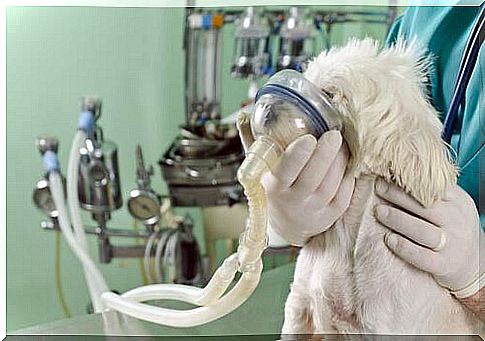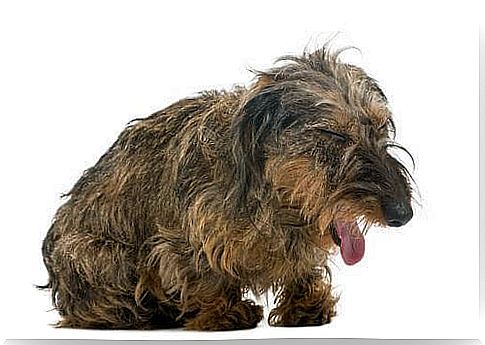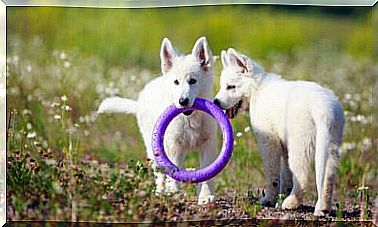How To Deal With Respiratory Problems In Dogs

Many dog breeds have difficulty breathing due to genetic problems or characteristics. Other breeds are also not free from respiratory problems, which need to be prepared for.
Knowing the causes of respiratory problems and knowing how to act will be very important if we want to help our dog.
What are the most common breathing problems in dogs?
There are several causes that can lead to respiratory problems in dogs. Each of these conditions is related to one of these causes. The four main causes are:
- Bacterial infections
- Viral infections
- Fungal infections
- Allergies
The most common dog breathing problems are usually caused by bacterial infections, but don’t take this for granted, as they could also be caused by more serious problems.
The most common symptoms of dog breathing problems are:
Cough
A cough can arise at any time and in any breed, and while it’s not always a symptom of a serious problem, it could be.
Coughing can sometimes be just a minor sore throat, while at other times it could be the consequence of a more serious illness.

To understand its severity, we must primarily rely primarily on its duration.
If it makes it past the day, it’s best to go to the vet, as this is often a symptom of a more serious problem.
Sneezing
While a sneeze may not seem like something to watch out for, sometimes these are caused by blocked nasal passages and can cause bleeding.
If you think that your dog is sneezing much more than usual and with a greater intensity than normal, you should have him examined by your vet.
Loss of appetite
Although breathing problems are generally not related to the stomach, the dog may feel sick or very tired and will have little desire to eat. He will seem weaker than usual and not only inappetent, but also unwilling to run and play.
If this situation persists for more than a day, do not delay in going to the vet. Never underestimate the fact that timely intervention can often save your pet’s life.
Excessive breathlessness and nasal discharge
As a general rule, when breathing problems arise in dogs, both symptoms appear simultaneously, although not necessarily.
Wheezing or rapid breathing and excess mucus are undoubtedly clear signs that something is wrong with your dog’s respiratory system.

These are some of the more common symptoms, although others may arise, such as whistling when breathing, depression or lethargy.
There is no need to repeat that you will have to observe the animal closely and intervene promptly in case of any change in behavior.
The most common dog breathing problems
- Cold. It is the most common, but we must not think that it is not dangerous, because a badly treated cold can cause greater problems.
- Cough of dogs. It is a dry cough, which is usually contracted in poorly hygienic places with the presence of other dogs. It is easily contagious, so pay attention to your dog’s encounters.
- Distemper. It is one of the best known and most dangerous canine diseases. It usually occurs in unvaccinated dogs, and is highly contagious through urine and faeces, as well as through normal breathing.
- Asthma. Asthma is usually caused by a genetic problem. It occurs when the dog has an allergy and this causes the bronchial tubes to close. If not treated in time and properly, it could cause the animal to die from suffocation.
- Pneumonia. Caused by fungi, it causes inflammation of the lungs and respiratory tract. It causes wheezing, coughing, and other symptoms we discussed earlier. If they last longer than a few hours, don’t hesitate to go to the vet.
- Tonsillitis. Although we know this respiratory disease mainly as a human disease, it can also affect dogs, but it can be less serious because it is easily treatable with drugs.
These are the best known dog breathing problems that can affect regardless of age or breed. Remember that regular vaccinations and vet visits can avoid many of these problems.









